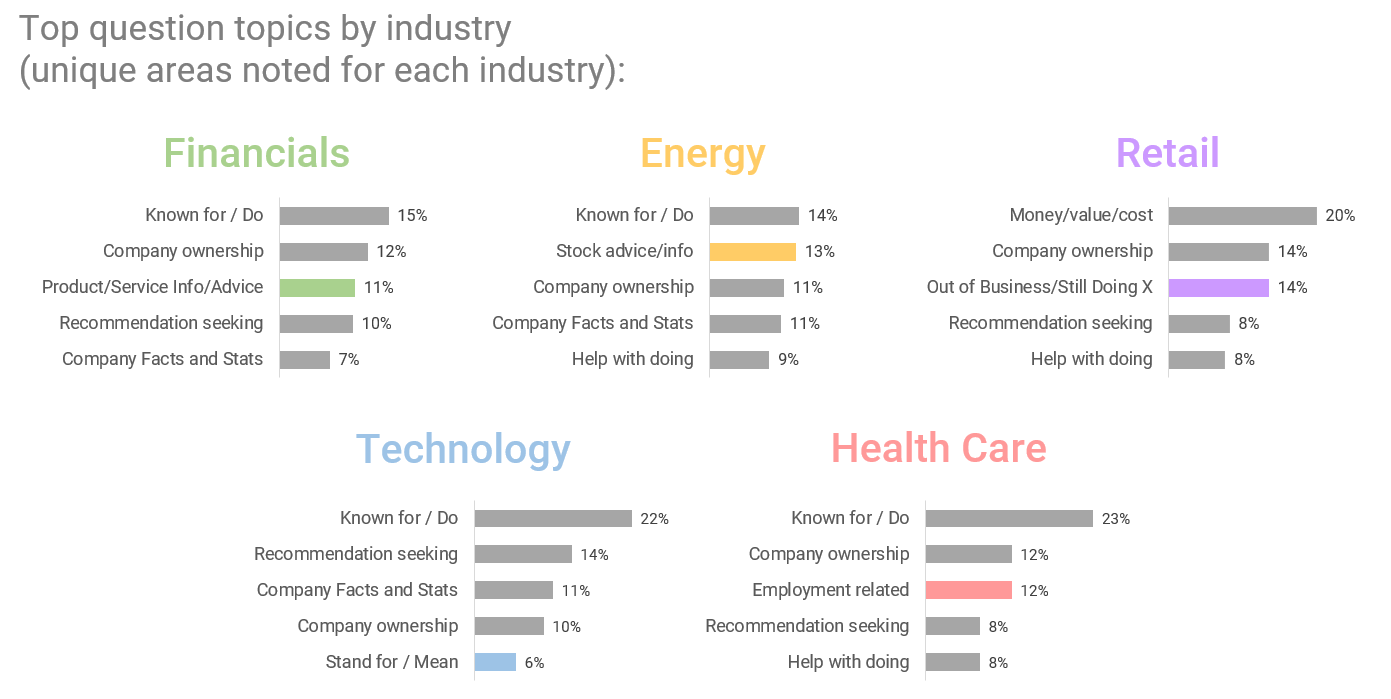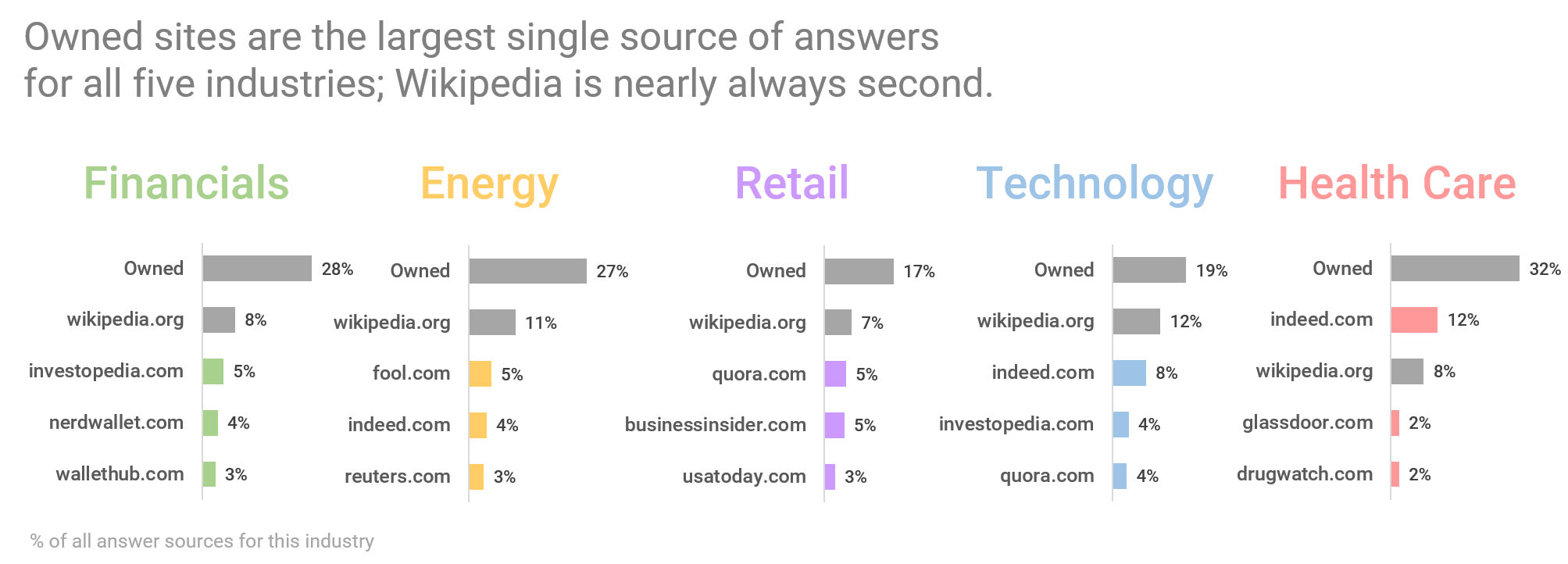People Also Ask: Your Answer May Be a Question!
Google’s People Also Ask Box has become an increasingly prominent feature on page one of search. Usually you will see it as a section in the middle of the Google search results page, featuring 3 or 4 questions.
Many companies have noticed that searches about them bring up some bizarre and seemingly contrived questions (“Why is X so bad?”). They wonder if there’s anything that they can do about not only the answers, but the appearance of these types of questions themselves.
The short answer is yes!
But let’s back up for a moment.
People Also Ask: About the Answers
Given that nearly all major companies and CEOs have this feature appear in searches for their name, we’ve recommended in previous articles that brands should own some answers. This means tailoring content, particularly FAQ sections, around real research into what Google typically shows searchers about the company, individual, or related searches. Providing relevant answers would be a way to capture the sources of the PAA for those questions.
In late December, JR Oakes wrote an extremely insightful article in Search Engine Land, about his research on the PAA feature. His analysis explores themes, sources, and sentiment in questions about companies, and the article concludes, worryingly, with the observation that “the PAA results seem dissociated with actual user search interest and more driven by the content that is available online.”
But perhaps therein – with the content – lies opportunity.
PAA Questions, Sliced by Industry
Five Blocks tracks the search results for tens of thousands of keywords on a daily basis. We wondered whether by analyzing our collected data we might be able to provide additional useful guidance on PAA best practices. Are there specific strategies that brands can use to exert more control over the questions and answers section?
We looked at Fortune 500 companies over the first week in December ’20, as searched in New York.
Over the course of the week, most companies had five to seven different questions showing on the first page of their Google results. The Retail industry had the greatest variety of questions, with 7.5 different questions on average per retail company compared to an average of about 6 for all other industries we studied.
The top five topics included in PAA questions account for about 50% of all questions asked across major industries (Financial, Energy, Retail, Technology, Healthcare.)
These topics are:
- What is the company known for / what does it do?
- Who owns the company?
- Is the company / service recommended / better than competitors?
- Company facts and stats
- Help with doing (eg: How can I access my bank account?)
There are also industry-specific questions that we see among the top five.
The Energy sector, which includes companies like American Electric Power and NextEra, has stock questions appearing prominently.
The Technology sector (CDW and Amphenol, for example) elicits questions about what the company name stands for or means (as these names are often “made up words”).
So…what can companies do if unwanted, irrelevant questions pop into the PAA?
As mentioned at the beginning of this article, owning content related to searcher questions is key – since available content online does seem to drive both the questions Google presents and the answers to those questions.
Since owned sites (a company’s corporate website and social media, for example) account for the largest slice of answer sources across industries studied, followed closely by Wikipedia, maximizing the potential of these sources is a good practice for companies.
Also worth noting:
- Owned content sources that end up in the PAA is most prevalent in the Healthcare industry, and least common in Technology and Retail. In these last sectors, Wikipedia is also less popular as an answer source.
- Answers to questions shown for retail companies like Dillard’s come from a larger variety of sites than in other industries. This is likely because there is a larger assortment of questions shown for retailers than for other types of companies.
- Interestingly, Quora is a top answer source for both the Technology and Retail sectors, indicating that Google is willing to trust crowdsourced responses as reliable enough to include as answers to these types of questions.
- Within the Healthcare sector, notable answer sources include both Indeed and Glassdoor, suggesting many of these questions relate to employment.
There are some additional actions that companies can take to “change the conversation”:
- Companies should make a point of knowing what types of questions are asked, not just about them specifically, but about other companies in their industry.
- While the general types of questions by industry are likely to remain stable over time, current and world events can yield opportunities for companies and brands to provide timely answers to relevant new questions as they arise.
- For example, right now we are seeing many questions for retailers asking if they are still around or out of business. This suggests that, during a crisis, retailers may want to remind customers of ways they can do business, even as storefronts are temporarily unavailable. It also means that brands should ask and answer those specific questions explicitly on their website, such as: Yes, we are open 24/7, via our website.
- Although questions related to the legitimacy and trustworthiness of a company are infrequent (we saw these at low levels and only for financial, tech, and retail companies), they can be impactful on a searcher’s perception of a brand. Companies need to regularly monitor the questions Google shows for them and, as mentioned above, leverage content that will negate unfavorable ideas suggested by these questions.
- Note that different searches bring up different questions (“Can I do X” may bring up different questions than “Can you do X”), and that clicking on a question brings up new questions. The best practice is to be aware of the various types of questions and to be sure to have content that asks and answers as many as possible.




